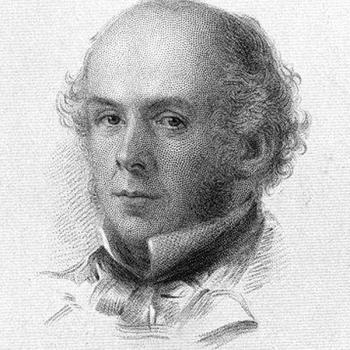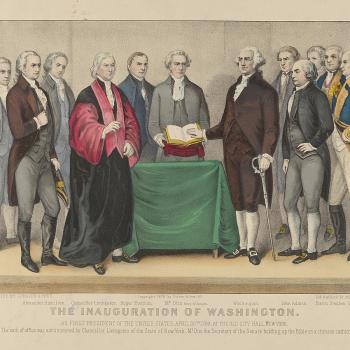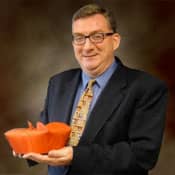As a Church historian, I'm often asked, "What's a good book to start with?" It's a tough question. There are few books on the subject geared toward a popular audience. General histories of the Catholic Church can be useful, but sometimes they pack so much information that your head spins.
However, there are several I recommend for the general reader, all of which are available through Amazon (they're listed in no particular order.) They're readable, interesting, and a good way to start on the subject. You can also take them to the beach!
- Eamon Duffy, Saints and Sinners: A History of the Popes
To anyone looking for a readable and concise introduction to Catholic history, I recommend this one. Duffy teaches at Cambridge University, and he did a BBC series on the Popes. This is an enjoyable overview of 2,000 years; it never overwhelms, but hits all the key points. (I also recommend Ten Popes Who Shook the World, a shorter work based on the TV series). He's a master scholar who tells a good story. - Stephen J. Ochs, Desegregating the Altar: The Josephites and the Struggle for Black Freedom, 1871-1960
The Josephite Fathers were founded to minister to African-Americans. Ochs, a high school teacher in Maryland, traces their attempts to form an African-American clergy and the challenges they faced, both inside and outside the Church. In time, he notes, white racist pressure became too much, and they found themselves forced to abandon these plans (at least temporarily). Ironically, it was the Vatican who led the fight for a native Black clergy when American church leaders were hesitant to address the issue. No book I know better brings to life the challenges faced by America's first Black priests.
- Charles R. Morris, American Catholic
Until this book came along in 1997, there was no book on American Catholic history for the general reader. Morris contends that until the 1960's, Catholicism was as much a culture as a religion, and today we have a religion bereft of its cultural underpinnings. Beginning in the 1840's, he traces the Church's rise from a despised minority to the nation's single largest religious denomination. Whether you agree with his conclusions or not, Morris's book is generally accepted as the single best work of its kind. I highly recommend this one. - Eamon Duffy, The Stripping of the Altars
Scholars have long debated whether the English Reformation was a popular movement or was imposed from above, and Duffy champions the latter view. He compellingly argues that the pre-Reformation Church was a strong and vibrant community forcibly dismantled to satisfy the demands of state. Whether or not you agree with Duffy, he makes a compelling argument (and tells a good story in the process!). - Paul Horgan, Lamy of Santa Fe
Many readers are familiar with Willa Cather's Death Comes for the Archbishop, the story of a 19th century New Mexico bishop. Many don't know that she based her story on a real person, John Baptist Lamy (1814-1888). Cather, a non-Catholic, admired his courage and conviction as he ministered in the Southwest. Paul Horgan won his second Pulitzer Prize for this 1975 biography. This is the only book on American Catholic history to win a Pulitzer Prize. Well written and compelling! - Paul Elie, The Life You Save May Be Your Own
This book, the author's first, won several awards at the time of its release. It's a multi-biographical account of four prominent 20th century Catholic authors: Thomas Merton, Dorothy Day, Flannery O'Connor, and Walker Percy (three of them converts). An ascetic, an activist, and two fulltime authors: their story is not merely literary biography. It's the story of their respective (and collective) spiritual journeys. Fans of any (or all) of the above will find this book especially enjoyable. - Kenneth Woodward, Making Saints: How the Catholic Church Decides Who Becomes a Saint, Who Doesn't, and Why
This is one of my all-time favorite books on the Catholic Church and the process of choosing who gets raised to the honors of the altar (and how). This is a well researched, fascinating work that will keep you reading late at night. Woodward pulls no punches; he doesn't always agree with the choices made, but he gives a fair and solid account of the journey thereto. - John W. O'Malley, S.J., The First Jesuits
No religious order has had a greater impact on Church history than the Society of Jesus, founded in 1540 by St. Ignatius Loyola. This book by a Georgetown University professor looks at the founding of the order, the rationale behind its founding, and its first members. Full of insights (and even some surprises), well written, and a good introduction to Jesuit history. - James M. O'Toole, Passing for White: Race, Religion, and the Healy Family, 1820-1920
The Healys were an impressive family that included a bishop, a Jesuit university president, and a priest-scholar. Few knew was that while their father was a southern planter, their mother was a slave on their plantation. O'Toole, a professor at Boston College, traces their respective careers while tracing the toll that American racism took on them as they strove to "pass for white." A fascinating book! - Jean LeClerq, The Love of Learning and the Desire for God
There are many books on the Middle Ages, but few surpass this account of the monastic mindset during the era of its greatest influence. LeClerq, a Benedictine, notes that a twofold impetus motivated the monk: a dedication to scholarship and a desire to grow closer to God. This is what the Middle Ages were really all about!
I could list some more, but these seem to me the best I can recommend for someone interested in Church History. Let me know if you have any favorites of your own!
3/19/2012 4:00:00 AM





